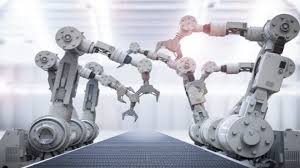As robotics continues to evolve and integrate into various sectors of society, it raises important ethical and societal questions. While robotics brings immense benefits, the challenges it presents are equally significant. From job displacement to privacy concerns and the ethics of autonomous robots, the future of robotics is filled with both promise and potential pitfalls.
1. Job Displacement and Economic Impact
One of the most pressing concerns regarding robotics is the potential for job displacement. As robots take over repetitive and manual tasks, there is a fear that millions of workers, especially in industries like manufacturing, transportation, and retail, could lose their jobs.
For example, in warehouses, robots are already handling tasks like sorting and packing, which were once performed by humans. Similarly, autonomous trucks and delivery drones could disrupt the transportation industry, reducing the need for human drivers.
While automation offers numerous efficiencies, society must find ways to mitigate its economic impact, perhaps through retraining programs and new opportunities for workers in robotics and AI-related fields.
2. Privacy and Security Concerns
With the rise of autonomous robots, there are growing concerns about privacy and security. As robots become more integrated into daily life, many will collect sensitive data, whether it’s from healthcare robots monitoring patient health or autonomous vehicles tracking passengers’ locations.
There is a significant risk that this data could be exploited by malicious actors if not handled securely. The rise of connected robots could also increase the potential for hacking, making it crucial for developers and regulators to prioritize cybersecurity in their designs.
3. Autonomous Decision-Making and Ethics
Another ethical dilemma posed by robotics is the increasing ability of robots to make autonomous decisions. This is particularly relevant in fields like autonomous vehicles, military drones, and medical robots.
For example, in self-driving cars, robots might have to make life-and-death decisions in emergency situations, such as whether to avoid a collision at the risk of injuring a pedestrian. The ethical implications of these decisions are complex, and society will need to establish frameworks to determine how robots should act in these circumstances.
Moreover, military robots, such as drones, raise questions about accountability and the potential for misuse in warfare, as autonomous weapons systems could be used to make life-and-death decisions without human intervention.
4. Regulations and Governance
As robots become more capable, there is a pressing need for regulations that address safety, privacy, and ethical concerns. Many countries are already exploring laws and frameworks to govern the development and deployment of robots. Ensuring robots are used responsibly while protecting human rights and security is essential for their widespread acceptance.
Conclusion
The ethical and societal challenges posed by robotics cannot be ignored. While robots have the potential to revolutionize industries and improve quality of life, it’s important that we address issues like job displacement, privacy, autonomous decision-making, and security. As robotics continues to advance, a balanced approach that considers both technological innovation and ethical considerations will be key to ensuring a positive future for humanity.
